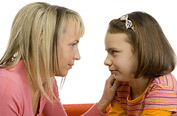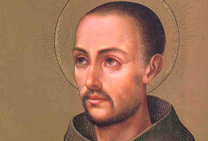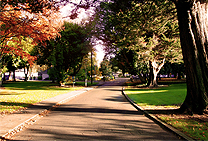Overview

Information for parents, guardians and teachers.
A Child may experience psychological challenges at any point in his/her development. These difficulties may be expressed by the child in a variety of ways including emotional distress, behavioural difficulties or a mixture of the two. Lucena Clinic can help you and your child. Lucena Clinic is free, but you need a medical referral to attend.
WATCH VIDEO
Commonly this is passing phase for a child. Often when parents becomes aware that there is an issue for their child and address the underlying cause this is enough to contain the problem. In a minority of cases, however, parents may become aware that the problem is continuing despite their best efforts and is causing ongoing issues for the child and often the family as a whole. In circumstances where there is ongoing distress, emotional upset, behavioural problems and associated impairment for the child, it is often very useful to talk to the child’s GP about whether an assessment in the clinic might be helpful.
As a Specialist mental Health Clinic, we require a GP or other medical referral (Paediatrician, Area Medical officer). In order to make a referral the doctor must first seen and assess the child to consider whether referral might be helpful. Typically a doctor will advise that a child is referred when significant concerns have been raised regarding a child’s psychological well-being. If a Teacher or Social Worker is concerned about a child, he/she should recommend to the parent that the child be brought to a GP so a decision can be reached as to the need for referral to a CAMHS clinic.
What sorts of mental health difficulties can the Clinic assess and treat?
In order for us to be in a position to provide the necessary help for a child, the difficulties the child presents with must fall within the expertise of the clinical staff. As a Child and Adolescent Mental Health Service (CAMHs), we are a specialist service and have expertise in diagnosing and treating the following:
- ADHD
- Anxiety Disorders
- Depression
- Bipolar/Schizophrenia Disorder
- Psychosis
- Eating Disorders
- Obsessive Compulsive Disorders.
What services does the clinic not provide?
-
Treatment programmes for children with Autism: The clinic does not provide treatment programmes for children with Autism, Children who are diagnosed as having Autism are referred to another service.
-
Educational Psychological Assessments: The Clinic does not provide educational psychological assessments. This service is provided by the National Educational Psychological Service (N.E.P.S.). This service has to be accessed by the parent through the child's school principal.
-
Speech and Language and Occupational Therapy Assessments: We do not provide Speech and Language or Occupational Therapy assessments or treatment for children who do not also have emotional or behavioural difficulties.
-
Assessments for the purpose of advising in Custody and Access Disputes.
Typically when a referral is received, it is reviewed to determine whether the child may be assessed here. If it appears likely that assessment here will be helpful, a child’s name will be added to the waiting list. Prior to an appointment being offered, consent forms will be sent to parents/guardians. This is necessary based on the current interpretation of the law for children up to the age of 18. Parents may also be asked to complete questionnaires regarding their child in advance of the assessment. In addition parents may be asked to request that the child’s teacher complete a questionnaire in relation to their child.
The first assessment will involve one or more clinicians together with the child and both parents/guardians. The first assessment typically involves a ‘clinical interview’ with parents and child which may take up to 2-3 hours. The child or young person may be seen on their own for a portion of that time, depending on the child’s age, presentation and the issues being explored. We help families and young people by firstly understanding the nature of the underlying difficulty through assessment and diagnosis. Parents typically find this first step of having a greater understanding of the issues a significant help. Following the assessment, parents will be advised about the next steps which may include further assessment and treatment. Once there is a clear understanding as to the nature of the child’s difficulties we will plan treatment which will be targeted to improve specific aspects of the child’s difficulties as agreed by parents, child and clinicians. The ‘treatment plan’ agreed will be based on the individual needs of the child in the context of available resources.
What Treatments may be available?
Treatment may include:
- Cognitive Behavioural therapy
- Family therapy
- Medication
- Occupational therapy
- Parenting Courses
- Supportive Therapy
- Speech and Language Therapy










